Field Quality Engineer
10+ Field Quality Engineer Interview Questions and Answers
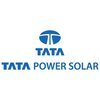
Asked in Tata Power Solar

Q. What is the torque value of an M20 bolt, grade 9.2, under dry conditions?
The torque value of an M20 bolt in dry condition and grade 9.2 is typically around 420 Nm.
The torque value for a specific bolt can vary based on factors such as lubrication, thread condition, and material composition.
For an M20 bolt with grade 9.2, the recommended torque value is usually in the range of 400-450 Nm.
It is important to consult the manufacturer's specifications or a torque chart for the exact value based on the specific conditions.
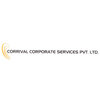
Asked in Corrival Corporate Services

Q. What types of admixtures are used in concrete?
Admixtures are chemicals added to concrete to enhance its properties or performance.
Admixtures can improve workability, durability, strength, and set time of concrete.
Examples of admixtures include water reducers, accelerators, retarders, and air-entraining agents.

Asked in Corrival Corporate Services

Q. What are the acceptance criteria for a cube sample?
Cube acceptance criteria refers to the set of standards or requirements that a cube must meet in order to be accepted or approved.
Cube dimensions must meet specified tolerances
Surface finish must meet specified standards
Cube must pass specified strength or durability tests
Cube must meet any other specified criteria for acceptance
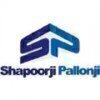
Asked in Shapoorji Pallonji Group

Q. What is the workability of concrete?
Workability of concrete refers to its ease of mixing, placing, and compacting without segregation or bleeding.
Workability is influenced by water content, aggregate size and shape, and admixtures.
Concrete with high workability is easier to place and compact, while low workability may require more effort.
Examples of tests to measure workability include slump test, flow table test, and Vebé test.

Asked in Corrival Corporate Services

Q. What is the code for the UPV test?
The code for UPV test is ASTM C597.
ASTM C597 is the standard code for Ultrasonic Pulse Velocity (UPV) test.
UPV test is commonly used in construction to assess the quality of concrete.
The test involves sending ultrasonic pulses through the concrete and measuring the time taken for the pulses to travel through the material.

Asked in Corrival Corporate Services

Q. What are the different types of piles?
Different types of pile include friction piles, end-bearing piles, and composite piles.
Friction piles rely on skin friction along the length of the pile for support.
End-bearing piles transfer the load to a strong layer of soil or rock at the bottom.
Composite piles combine different materials like concrete and steel for added strength.
Other types include sheet piles, helical piles, and screw piles.
Field Quality Engineer Jobs




Asked in Bharat Forge

Q. How many types of bearings are there?
There are several types of bearings used in various applications, including ball bearings, roller bearings, plain bearings, and fluid bearings.
Ball bearings
Roller bearings
Plain bearings
Fluid bearings
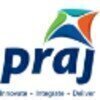
Asked in Praj Industries

Q. What is P91 metal welding?
P91 metal welding refers to welding techniques used for joining P91 steel, a type of high-strength, low-alloy steel commonly used in high-temperature applications.
P91 steel is a type of low-alloy steel known for its high strength and creep resistance.
Welding P91 steel requires preheating and post-weld heat treatment to prevent cracking and maintain mechanical properties.
Common welding techniques for P91 steel include TIG (tungsten inert gas) welding and SMAW (shielded metal a...read more
Share interview questions and help millions of jobseekers 🌟


Asked in Corrival Corporate Services

Q. What does M30 stand for?
M30 stands for a metric thread size commonly used in engineering and manufacturing.
M30 refers to a metric thread size with a diameter of 30mm
It is commonly used in engineering and manufacturing for fastening components
Examples of M30 fasteners include bolts, screws, and nuts

Asked in Concentrix Corporation

Q. What is calibration?
Calibration is the process of comparing measurements of an instrument or device to a known standard to ensure accuracy.
Calibration involves adjusting the instrument or device to align with the standard
It is important for maintaining accuracy and reliability of measurements
Calibration is typically done regularly to ensure consistent performance
Examples include calibrating thermometers, scales, and pressure gauges

Asked in Tata Power Solar

Q. Explain serrated washers.
A serrated washer is a type of washer with serrations on one side to prevent loosening of the fastener.
Serrated washers have teeth or ridges on one side to grip the surface and prevent rotation or loosening
They are commonly used in applications where vibration may cause regular washers to loosen
Serrated washers are available in various materials such as steel, stainless steel, and nylon

Asked in Tata Power Solar

Q. Percentage of carbon in MS
The percentage of carbon in MS (mild steel) typically ranges from 0.05% to 0.25%.
Percentage of carbon in MS (mild steel) is usually between 0.05% to 0.25%.
Carbon content affects the strength and hardness of the steel.
Higher carbon content results in harder but more brittle steel.
Lower carbon content results in softer but more ductile steel.
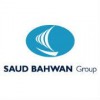
Asked in Saud Bahwan Group

Q. What is welding
Welding is a process of joining two or more metal pieces together by melting and fusing them.
Welding involves applying heat to the metal pieces until they reach a melting point
A filler material is often used to help create a strong bond between the pieces
Common types of welding include arc welding, MIG welding, and TIG welding
Welding is used in various industries such as construction, automotive, and aerospace

Asked in Tata Power Solar

Q. Define IS code 822.
IS code 822 is a standard set by the Bureau of Indian Standards for the method of conducting hydrostatic tests on concrete pipes.
IS code 822 specifies the procedure for conducting hydrostatic tests on concrete pipes to ensure their quality and durability.
The code outlines the equipment required, test procedure, acceptance criteria, and reporting requirements.
It is important for field quality engineers to be familiar with IS code 822 to ensure compliance with industry standard...read more

Asked in Tata Power Solar

Q. Type of alignment
The type of alignment refers to the positioning of components in relation to each other.
There are different types of alignment such as parallel, perpendicular, angular, and concentric.
Alignment is crucial for proper functioning and performance of mechanical systems.
For example, in automotive engineering, wheel alignment is important for vehicle stability and tire wear.
In manufacturing, alignment of machine parts ensures precision and accuracy in production.
Alignment can be ac...read more
Interview Questions of Similar Designations
Interview Experiences of Popular Companies








Reviews
Interviews
Salaries
Users

















